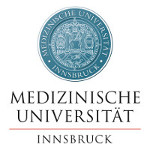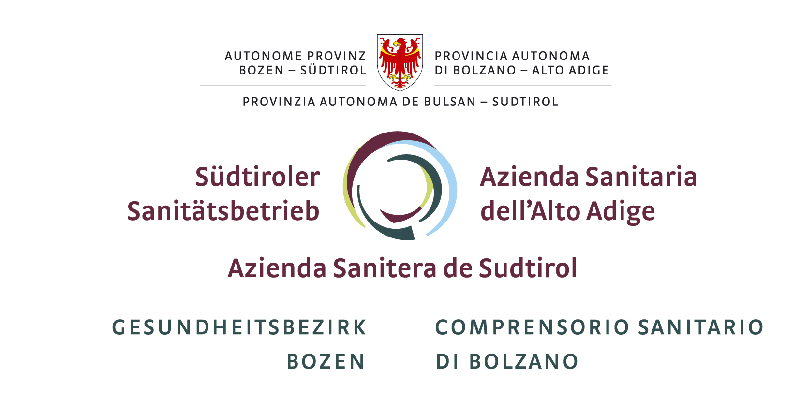AppleCare - Treating birch pollen allergy through apple consumption
Funded by:
.png)
European fund of regional developement with the cooperation program Interreg V-A Italy-Austria 2014–2020
Aim of the project:
One in five people in Central Europe suffers from a pollen allergy, and every year there is a clear increase in this percentage, also in Tyrol and South Tyrol. At the moment, to carry out effective hyposensitisation therapy against the birch pollen allergen Bet v1, one of the most common allergies, patients must take the allergen in the form of a synthetic preparation for several years in order to habituate their immune system. If hyposensitisation were instead to occur through the simple consumption of food, there would be an immense advantage. The birch Bet v1 and apple Mal d1 allergens present strong homologies and cause a cross-reaction in the human immune system.
This knowledge is the starting point of a project that aim at finding out whether it is possible to treat pollen allergy through the controlled ingestion of the right amount of apple. Through a cross-border research approach in the fields of medicine, molecular biology and structural chemistry, the dosages and cultivars of apples that prove suitable for the treatment of pollen allergy will be defined. This multidisciplinary synergy will result not only in the creation of an interregional database of allergy patients, but also in a selection of apple varieties that are as suitable not only for a hypoallergenic diet but also for a persistent form of therapy. In addition, this will significantly strengthen the potential for innovation on both sides of the Brenner border.
Partnership:




To achieve the predefined goals, it is essential to carry out the project with a multidisciplinary approach. The clinical studies and the creation of the database of allergy patients take place in the hospitals in Bolzano and Innsbruck. As there is the most renowned NMR expertise in the entire programme area, all work concerning the three-dimensional structure of apple and birch pollen allergens is carried out at the Institute of Organic Chemistry at the University of Innsbruck. The activities of the Laimburg Research Centre encompass all molecular and biochemical analyses of apple, strawberry and plum varieties and the provision of fruit samples for immunological tests on patients. The use of these complementary competences results in synergies that not only allow an all-round project approach, but also bring added value both for the individual partners and for the common scientific network of the project.
Expected results:
1. The central outcome of the project is the development of an alternative therapy method to treat patients allergic to birch pollen through the consumption of fresh apples and without the need to use synthetic compounds or lengthy hyposensitisation treatments.
2. Creation of an international database that will contain data on all inhalant allergy patients from the two regions involved. This database is generated by the two hospital partners of the project and will also be available for future projects and possible collaborative activities.
3. AppleCare describes the allergenic potential of a number of apple, strawberry and plum varieties. In this way, people who are allergic to apples can find out which varieties are most suitable for them before purchasing them, or in a future genetic improvement programme, those varieties can be selected that are best suited for new crosses aimed at developing hypoallergenic fruit.
Obtained results:
Different apple varieties (modern, ancient, reisistant) were tested and classified for their allergenic potential. An 'apple therapy' protocol was defined. This protocol starts with the consumption of the low-allergenic variety Red Moon® for a period of 8 weeks, followed by the medium-allergenic varieties Pink Lady® or Topaz for a further 8 weeks and finally the highly allergenic variety Golden Delicious for at least 16 weeks. The 'apple therapy' was tested on 16 patients, all with positive results. After the therapy, apple varieties and other fruits and vegetables such as cherries, kiwis, melons, peanuts or carrots were easier to tolerate. Patients suffered less from birch pollen during the pollen season with fewer allergic symptoms. The close collaboration between doctors, chemists and molecular biologists led to the project's main result, an apple-based therapy to replace synthetic preparations. Thanks to the intense publicity of the project and its results, the therapy is still recommended and available to interested persons in the relative medical structures, even after the end of the project.
Downloads:
- Flyer
- Poster_AppleCare
- Paper: Allergen-specific immunotherapy with apples: selected cultivars could be a promising tool for birch pollen allergy
- Paper: Oral birch pollen immunotherapy with apples: Results of a phase II clinical pilot study
- Paper: Covalent polyphenol modification of a reactive cysteine in the major apple allergen Mal d 1
- Paper: Ascorbylation of a Reactive Cysteine in the Major Apple Allergen Mal d 1
Project duration:
01.2017 – 07.2019
Project Team:
Laimburg research centre (Lead Partner):
• Dr. Thomas Letschka, Thomas.Letschka@laimburg.it – Head of the "Applied Genomics and Molecular Biology" working group (General Project Manager)
• Dr. Valentina Cova, Valentina.Cova@laimburg.it – Working Group "Genomics for Genetic Breeding" (Project Collaborator)
• Cristina Gadotti, Cristina.Gadotti@laimburg.it – Working Group "Project Management" (Project Manager)
• Dr. Franziska Maria Hack, Franziska-Maria.Hack@laimburg.it – Working Group "Scientific Communication and Event Management" (Project Communication)
Innsbruck University (Project Partner):
• Dr. Martin Tollinger, Martin.Tollinger@uibk.ac.at – Institute of Organic Chemistry (Project Manager)
• Linda Ahammer, MSc, Linda.Ahammer@uibk.ac.at – Institute of Organic Chemistry (Project collaborator)
• Reiner Eidelpes,MSc, Reiner.Eidelpes@uibk.ac.at – Institute of Organic Chemistry (Project collaborator)
Medical University of Innsbruck (Project partner):
• Dr. med. Norbert Reider, Norbert.Reider@i-med.ac.at – University Department of Dermatology, Venereology and Allergology (Project leader)
• Bettina Nothegger, MSc, nothegger.bettina@i-med.ac.at – University Clinic for Dermatology, Venereology and Allergology (Project collaborator)
Health department of Sudtyrol - Area of Bozen (Project Partner):
• DDr. Klaus Eisendle, Klaus.Eisendle@sabes.it Department of Dermatology (Project leader)
• Dr. med. Claudia Eugenia Covaciu, ClaudiaEugenia.Covaciu@sabes.it, Department of Dermatology (Project co-worker)
Associated Partners:
Union of South Tyrolean Farmers and Direct Farmers
Agrarmarketing Tirol
